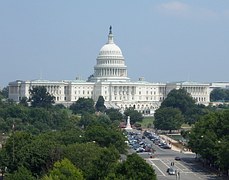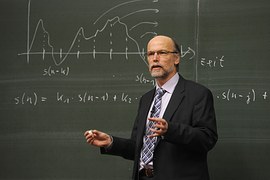 In New Jersey, obtaining a teaching certificate is a difficult task, requiring a great deal of credentials. For the individuals who are issued a teaching certificate, it is a testament to the individual’s dedication, commitment, and passion for teaching. Therefore, if your certificate is at risk of being revoked or suspended, it is important to know your rights and whether to challenge such a determination.
In New Jersey, obtaining a teaching certificate is a difficult task, requiring a great deal of credentials. For the individuals who are issued a teaching certificate, it is a testament to the individual’s dedication, commitment, and passion for teaching. Therefore, if your certificate is at risk of being revoked or suspended, it is important to know your rights and whether to challenge such a determination.
The State Board of Examiners may revoke, suspend or deny a teacher’s certificate for many grounds set forth in the New Jersey Department of Education’s regulations in the New Jersey Administrative Code, N.J.A.C.§6A:9B-4.4. One of the grounds that the State Board of Examiners may revoke, suspend or deny a teaching certificate is on the basis of “conduct unbecoming a teacher.” Like many legal terms, “conduct unbecoming a teacher” is inherently broad and encompasses a wide variety of teacher activity. Due to its broad nature, a look into how courts have defined and analyzed “conduct unbecoming a teacher” is important if your certificate is being revoked, suspended or denied to determine whether to appeal the revocation or suspension.
Courts have defined “conduct unbecoming a teacher” in multiple ways including :
 New Jersey Lawyers Blog
New Jersey Lawyers Blog



 The Corporation Business Tax (“CBT”) is a
The Corporation Business Tax (“CBT”) is a  The Supreme Court of the United States has recently issued an
The Supreme Court of the United States has recently issued an  New Jersey’s employment laws governing the rights and responsibilities of New Jersey teachers are found in Title 18A of New Jersey Statutes. The laws are complex, but our
New Jersey’s employment laws governing the rights and responsibilities of New Jersey teachers are found in Title 18A of New Jersey Statutes. The laws are complex, but our  The
The  New Jersey’s Department of Education has issued regulations which govern “controversies and disputes” with public employees such teachers and principals. The “controversies and disputes” cover a wide variety of issues including but not limited to the State Board of Examiner’s (“Board’s”) decision to block, revoke, or suspend a teacher’s certificate.
New Jersey’s Department of Education has issued regulations which govern “controversies and disputes” with public employees such teachers and principals. The “controversies and disputes” cover a wide variety of issues including but not limited to the State Board of Examiner’s (“Board’s”) decision to block, revoke, or suspend a teacher’s certificate. Lawsuits can settle immediately after a complaint is filed or several years into the litigation process on the eve of trial, or even during the course of a trial. Most cases will settle before a final resolution is determined by a judge or jury. Settlements generally offer a more favorable resolution than trial for several reasons: (1) both parties avoid the risk of loss at trial, (2) both parties avoid the considerable costs, time, and efforts involved in further litigation and trial, and (3) both parties avoid protracted appeals.
Lawsuits can settle immediately after a complaint is filed or several years into the litigation process on the eve of trial, or even during the course of a trial. Most cases will settle before a final resolution is determined by a judge or jury. Settlements generally offer a more favorable resolution than trial for several reasons: (1) both parties avoid the risk of loss at trial, (2) both parties avoid the considerable costs, time, and efforts involved in further litigation and trial, and (3) both parties avoid protracted appeals.
